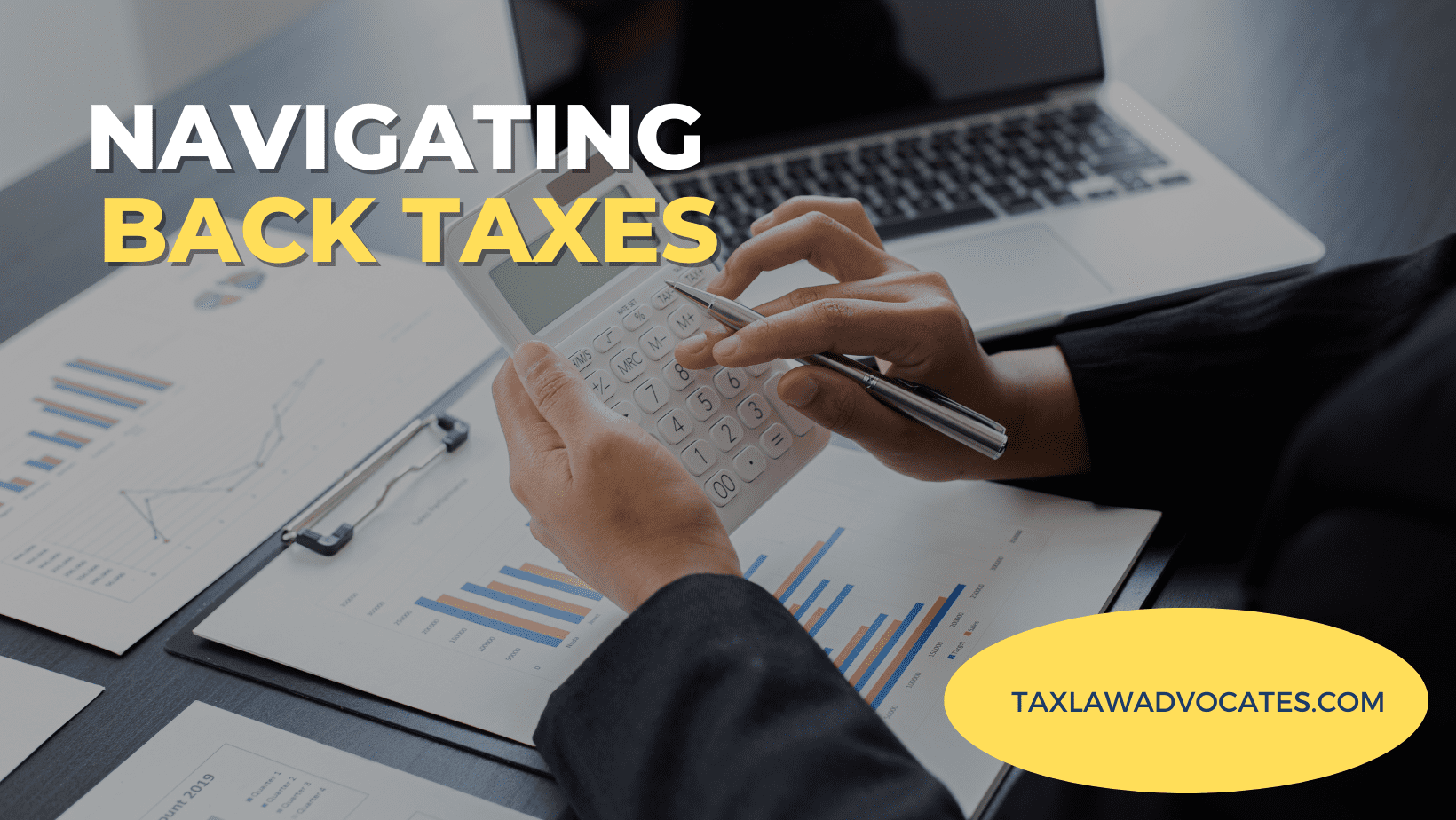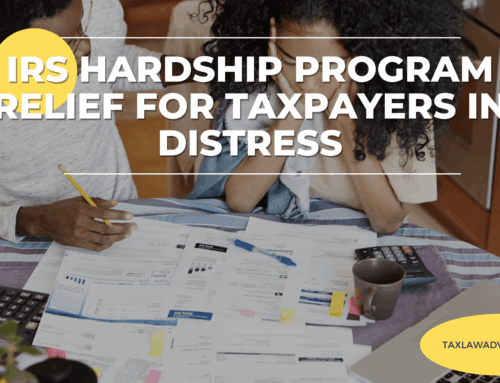Owing back taxes to the IRS can be an overwhelming and stressful experience, especially if the amount is significant. However, it’s important to remember that you’re not alone, and there are steps you can take to resolve the situation before it spirals out of control. The IRS offers several tax relief options, and with the right guidance, you can effectively navigate back taxes and avoid further penalties.
In this blog, we’ll walk you through what to do if you owe back taxes, the potential consequences of not addressing the debt, and the tax relief options available to help you settle your obligations.
Understanding Back Taxes and Their Impact
Back taxes are any taxes you owe to the IRS that were not paid by the due date. Whether you didn’t have the funds to pay, missed a filing deadline, or underestimated your tax liability, failing to address your tax debt promptly can result in additional interest, penalties, and enforcement actions like tax liens or levies.
Consequences of Not Addressing Back Taxes
Failing to take action on your back taxes can lead to serious financial consequences, including:
1. Accruing Interest and Penalties:
The IRS charges interest on unpaid taxes starting from the due date until the balance is paid in full. Additionally, penalties for failure to file and failure to pay can further increase the amount owed. These penalties compound over time, making it harder to pay off the debt.
2. Tax Liens:
A federal tax lien is the government’s legal claim against your property when you fail to pay a tax debt. It attaches to your assets and can negatively affect your credit score, making it difficult to secure loans or lines of credit.
3. Tax Levies:
A tax levy goes a step further than a lien, allowing the IRS to seize your property to satisfy the tax debt. This could include garnishing your wages, freezing your bank accounts, or seizing personal property, including real estate and vehicles.
4. Loss of Refunds:
If you are owed a tax refund in future years, the IRS can apply that refund to your back taxes until your debt is satisfied. You won’t see that refund until your tax bill is cleared.
5. Wage Garnishment:
The IRS has the authority to garnish your wages, meaning they can take a portion of your paycheck to apply toward your tax debt. This can significantly reduce your take-home pay and impact your ability to meet other financial obligations.
6. Criminal Charges:
While rare, in extreme cases, failure to pay taxes or intentional tax evasion can result in criminal charges and even imprisonment.
Steps to Take If You Owe Back Taxes
The most important step is to be proactive. Here’s a guide to the actions you should take if you find yourself owing back taxes to the IRS:
1. File Your Tax Returns
Even if you can’t pay the full amount, it’s critical that you file your tax return by the deadline. The penalty for failing to file is often more significant than the penalty for not paying the tax due. By filing on time, you avoid additional late-filing penalties.
2. Pay What You Can
If you can’t pay the full balance, pay as much as you can. This will reduce the amount of interest and penalties that accrue on the remaining balance. You can also avoid a larger debt down the road by reducing the principal amount owed.
3. Consider an Installment Agreement
If you owe $50,000 or less in combined taxes, interest, and penalties, you may be eligible for an Installment Agreement. This allows you to pay off your tax debt over time, typically in monthly payments. The IRS offers both short-term and long-term payment plans, depending on the amount you owe and your financial situation.
– Short-term Payment Plan: If you can pay off the debt within 120 days, you can apply for a short-term payment plan. No setup fee is charged, but interest and penalties will still accrue.
– Long-term Payment Plan: If you need more than 120 days to pay, you can apply for a long-term payment plan. A setup fee may apply, but this allows you to spread the payments over a more extended period.
4. Offer in Compromise (OIC)
If you owe a significant amount and can’t afford to pay it in full, you might qualify for an Offer in Compromise (OIC). This program allows you to settle your tax debt for less than the full amount owed based on your ability to pay, income, expenses, and asset equity. Keep in mind that the IRS only approves an OIC if they believe that the offered amount is the most they can reasonably collect from you.
To see if you qualify, the IRS provides an online OIC Pre-Qualifier Tool. However, applying for an OIC can be complex, and having the assistance of tax professionals, like the team at Tax Law Advocates, can significantly increase your chances of success.
5. Request a Delay in Collection
If you are facing severe financial hardship and cannot make any payments toward your tax debt, you may be able to request a Currently Not Collectible (CNC) status. This temporarily delays IRS collection activities until your financial situation improves. However, interest and penalties will still accrue during this time, and the IRS may file a lien against your property.
6. Spousal Relief Options
If your spouse or former spouse made errors on a joint tax return, you may be eligible for Innocent Spouse Relief. This program allows you to avoid being held responsible for the tax debt resulting from your spouse’s incorrect reporting.
7. Bankruptcy and Tax Debt
In certain cases, tax debt may be discharged through bankruptcy. If you are in the midst of a bankruptcy proceeding, it’s important to inform the IRS immediately. In some cases, collection efforts will be paused during the bankruptcy process.
How Tax Law Advocates Can Help
Navigating the complexities of back taxes can be overwhelming, but Tax Law Advocates is here to help. Our team of federally licensed enrolled agents, tax attorneys, and accountants work with the IRS and state authorities to help you resolve your tax debt effectively and efficiently. Whether you need assistance negotiating a payment plan, applying for an Offer in Compromise, or handling other tax-related issues, we can help you find the best solution tailored to your situation.
If you’re struggling with back taxes and don’t know where to start, contact Tax Law Advocates today. Our experienced team will work with you to understand your financial situation and recommend the best course of action to resolve your tax debt. Call us at 855-612-7777 or visit our website to schedule a consultation and start your journey toward financial freedom. Don’t wait until the IRS escalates its collection actions—take control of your tax situation now with the help of Tax Law Advocates.






